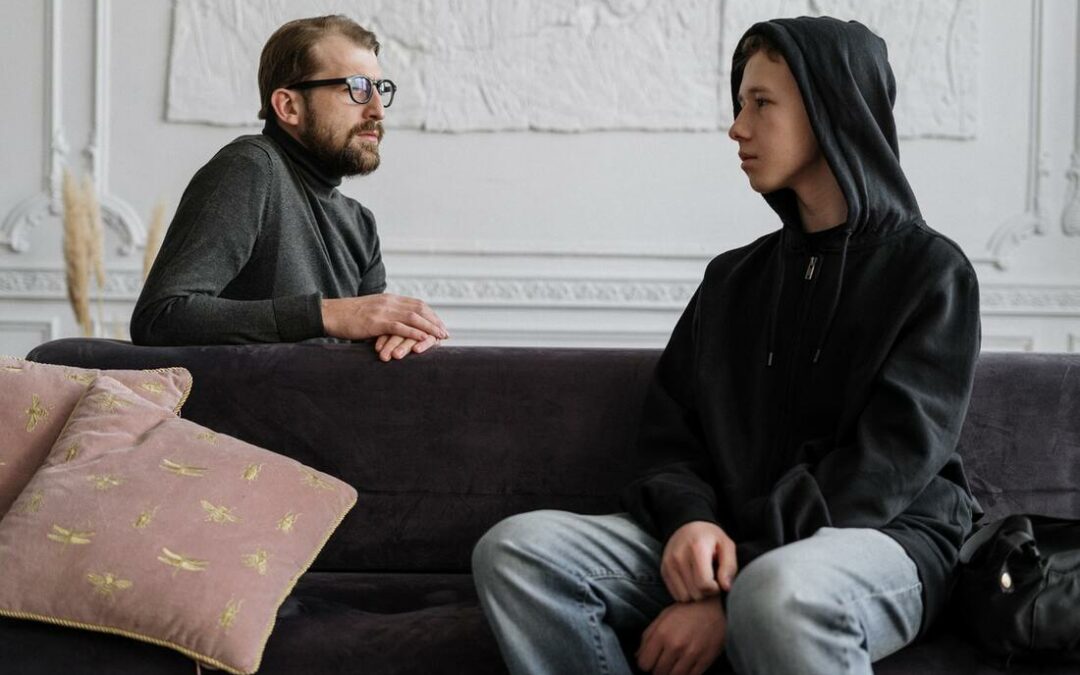Getting a scoliosis diagnosis can be upsetting and even downright frightening at times. Regardless of what age group you belong to, it can be a difficult diagnosis to come to terms with.
Scoliosis is a physical disease, but one that can significantly affect your mental state as well. Especially for young, impressionable children and teenagers.
As a parent, scoliosis can be a tough diagnosis to help your child through. Aside from the pain, they might refuse to put on scoliosis bracing or go through periods of depression. You might be wondering how you can help your child work through their emotions during this difficult phase.
How Can You Help Your Child?
The disease causes physical deformity, pain, neurological, and respiratory issues and hinders one’s ability to perform simple daily activities. That, coupled with all the misinformation out there about limited treatment options and highly risky surgical correction, contribute to feelings of fear and panic.
Younger patients are often more susceptible to these myths and their ill effects. A simple step to help your child deal with the physiological issues of scoliosis is to keep them in the loop. It might be your first instinct to shield your child from worrisome news. But to win their trust, you must become their source of accurate information and updates regarding their illness.
Awareness is often the first step toward dealing with psychological issues. If your child has scoliosis, it’s important to remember that the effects of this disease are not limited to physical symptoms only.
Equipping yourself with accurate information is the first step you can take in your quest to help your child. Here are some ways scoliosis can impact your child and how you can help them.
Impact on Self-Image
Conversations around scoliosis treatment often revolve around the spine, scoliosis bracing, and surgical treatment options. At times, caregivers and even doctors can forget that the patient they are discussing is a genuine person.
Adolescence is a time filled with many changes and body-image issues related to these changes. Fitting in and feeling acceptance from peers is often the gauge teenagers use to judge their self-worth. A scoliosis diagnosis at a time like this can further wreak havoc on the young adult’s emotional well-being.
Research finds that female patients treated with scoliosis bracing are at even higher risk for a deeper psychological impact. Knowing that teenagers diagnosed with scoliosis are at a higher risk for mental illnesses better prepares caregivers and parents for dealing with these issues.
Encourage them to keep wearing their scoliosis brace for the recommended time daily. Taking steps to improve their condition actively can help combat feelings of helplessness in young patients, and scoliosis bracing is a way to do just that.
Make sure you are your child’s biggest cheerleader. Encourage them to try new things. Positive re-enforcement from you can help counter the psychological effects of a physical mal-formation.
Impact on Close Relationships
Scoliosis can make your teenager feel isolated and like no one understands what they are going through. Even with scoliosis bracing, and surgery, the deformity often alters the patient’s appearance and causes emotional trauma. That naturally takes a toll on close relationships as the child withdraws from social life in an attempt to hide away.
Understanding that your child might have good and bad pain days is helpful. It might be uncomfortable for them to sit for long hours at a social event, or they might feel awkward in dressy formal attire. Try and narrow down what exactly they feel self-conscious about.
Sometimes, the nature of the activities makes them hesitant to join in. Dancing or swimming are often possible for children with mild scoliosis. Still, it might be their hesitation to wear a swimming costume over scoliosis bracing that makes them avoid such activities.
In such cases, make sure to schedule events they can not only participate in but feel confident while doing so. Be your child’s advocate and never force them to partake in activities they are insecure about trying. Creating awareness about the disease can better equip your family and friend circle to become the support system your child needs.
Fear of Dependency and Regressing Quality of Life
Another fear commonly noted with younger scoliosis patients are having to depend on others for their basic needs. As the condition progresses, quality of life can be negatively affected if the condition goes untreated. Anxieties regarding decreasing quality of life and maintaining autonomy over tasks can cause depression for proud adolescent patients.
Thankfully, scoliosis bracing is an excellent non-surgical option for mild to moderate scoliosis patients. Especially for younger patients as their bodies and backbones are especially pliable.
Try to find a local scoliosis support group in your vicinity. Seeing other individuals lead successful lives despite being diagnosed with scoliosis can often be inspirational for your child.
Get Them the Help They Need
Try as you might, parents can do only so much to mentally support their children diagnosed with an illness. Encouraging your child to seek professional help can go a long way in canceling out the emotional effects of scoliosis.
Group therapy and support groups can also play a favorable role in your child’s mental wellbeing. Talk to your child’s doctor about scheduling sessions with a physiotherapist. They might be able to identify underlying issues that you’ve missed and give your child timely help.
Together We Can Defeat Scoliosis
Fighting scoliosis can be a long and debilitating battle for you and your child. One with significant psychological implications as well as physical ones. Please know that it’s one you don’t have to face alone.
Our spine experts at Align Clinic and trained not only in scoliosis bracing, but are also well aware of the emotional toll it can take on a young adult. They have helped hundreds of patients just like your child in their journey to recovery from scoliosis.
Call us today to book an appointment with one of our doctors.




